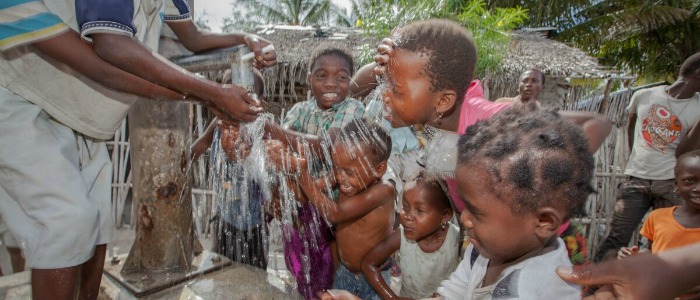
World Water Week (August 27 – September 1)
World Water Week is the annual focal point for the globe’s world water issues – It is organized by the Stockholm International Water Institute (SIWI). Experts, practitioners, policy-makers, business innovators, civic communities and individuals from a range of sectors come to Stockholm to exchange ideas, promote new thinking and advance solutions to the most severe water related challenges and their impacts on social, economic and environmental sustainability. Last year, more than 3,000 professionals and around 320 organizations from all over the world took part in World Water Week. This year, the theme is ‘Water and Waste: Reduce and Reuse’. Pressing topics that will be discussed include sanitation and health related to wastewater, integrated urban water management, food linked to nutrition, water-related disputes and the implementation of the Sustainable Development Goals (SIWI).
World Water Week is very important for us at DROP4DROP. The sustainable management of water is today’s most crucial issue. Water crises represent a major risk of our times and their effects will become more obvious in the next ten years. Water is essential for individuals, businesses and ecosystems and the ability to manage it in a sustainable manner today will determine the future of human and economic development. DROP4DROP is contributing to the implementation of the Sustainable Development Goals for universal access to safe drinking water and sanitation facilities by 2030. Our hard work in India and Uganda has relieved water pressures in the local areas where we work in through the construction and maintenance of reliable boreholes for the use and ownership of the local communities. We have managed to provide clean drinking water and safe sanitation to thousands of people previously living without, contributing to socio-economic development and to the prevention of waterborne illnesses.
DROP4DROP is considering the development of innovative technologies to address the issue of water wastage as well. We believe that the safe reuse of wastewater is essential to address current and future water challenges. Water scarcity, water quality and poor infrastructure facilities have resulted in economic instability, poverty and gender inequality. The recognition of the value of wastewater can promote innovation in financing and technology, while contributing to the achievement of the Sustainable Development Goals for water and sustainable production. If properly managed, wastewater can be used for crop productivity, either through direct irrigation or through the indirect recharge of aquifers, and contribute to agricultural production (SIWI). In addition, wastewater reuse can also reduce nutrient leaching to lakes, rivers, and groundwater. The good governance of water and waste is essential for a society’s development and human well-being. Wastewater shouldn’t be considered as a nuisance to be ignored but rather as a valuable and sustainable source of water that can play a critical role in the context of a circular economy, whereby economic development is balanced with the protection of natural resources and environmental sustainability (UN).